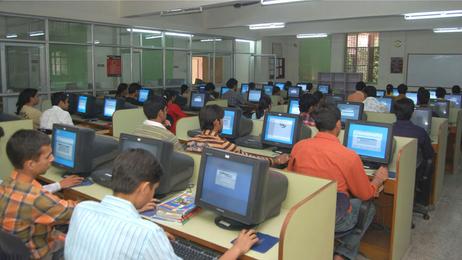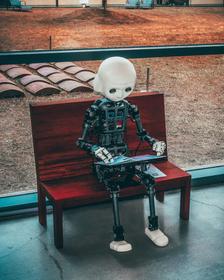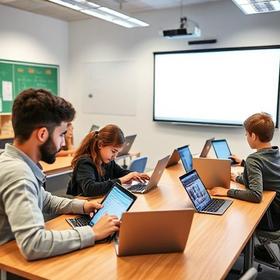Technology in Private Schools: 2025 Insights
Introduction
Over the last decade, private schools have become incubators for educational innovation, and in 2025, technology sits at the center of that evolution. From artificial intelligence (AI) in the classroom to smart campuses and digital wellness policies, private schools are blending tradition with cutting-edge tools. For families weighing the value of private education, understanding how these institutions deploy technology highlights both their adaptability and their commitment to preparing students for a rapidly changing world.
Personalized Learning Through AI
Private schools have long prided themselves on small class sizes and individualized instruction. Today, technology enhances that promise. AI-powered platforms can now monitor student performance in real time, adjusting assignments based on comprehension and engagement.
According to the National Association of Independent Schools (NAIS), more than 60% of private schools reported integrating some form of AI into classroom instruction by 2024, ranging from math tutoring software to adaptive reading programs. Students struggling with concepts receive extra practice before falling behind, while advanced learners access enrichment pathways.
Importantly, teachers remain at the center of instruction. AI tools handle immediate feedback, freeing educators to focus on critical thinking, creativity, and mentoring. This hybrid approach—human-led teaching supported by AI—has become a hallmark of technology in private schools.
Teacher Training and Digital Readiness
Technology is only as effective as the educators guiding it. A 2025 Carnegie Learning survey found that fewer than half of schools offer structured AI training for teachers, underscoring a national gap in preparedness.
In response, many private schools are dedicating professional development time to digital literacy and ethics. Workshops explore both the opportunities and risks of AI, from bias in algorithms to responsible use of generative tools. Some schools have even partnered with universities and ed-tech companies to pilot teacher certification programs in AI education.
This investment reflects a broader truth: technology in private schools succeeds not because of flashy tools, but because schools equip teachers with the knowledge to use them wisely.
Balancing Innovation and Screen Time
For many parents, a common concern is whether more technology equals more screen time. Private schools are addressing this by building balance into their policies.
Some schools schedule “device-free” blocks during the day, where students engage in outdoor activities, art, or hands-on projects without digital tools. Several boarding schools have introduced weekly “digital sabbaths,” during which students set aside devices to focus on community life.
This approach reflects a key strength of private education: flexibility. Unlike large public systems, private schools can tailor policies that reflect their philosophy, whether that means maximizing exposure to coding and robotics or carefully limiting screens in younger grades. Families exploring options can compare approaches in our Private vs. Public Schools: 2025 Guide.
Campus Technology and Daily Operations
Beyond the classroom, private schools are investing in technology to improve safety, efficiency, and communication. Admissions and tuition management now run on secure cloud-based systems, giving families more streamlined access to financial aid applications and school updates.
On campus, AI-driven security tools and smart energy systems have become more common. Facilities use real-time monitoring for efficiency, while administrators rely on data dashboards to make informed decisions. Parents often cite these innovations as part of the overall value of private education, combining modern convenience with a strong academic environment.
Accessibility and Inclusion
Technology in private schools is also reshaping how they serve diverse learners. AI-powered reading tools assist students with dyslexia, while voice-to-text applications help those with language-based learning differences. Virtual reality (VR) labs allow students with physical limitations to explore simulated science experiments or global travel experiences.
These innovations align with private schools’ emphasis on whole-child education. By 2025, many schools have expanded financial aid policies to ensure all students have access to laptops or tablets, recognizing that digital equity is as important as classroom inclusion.
Diverse Approaches to Technology
Not every private school uses technology the same way. A STEM-focused academy might offer robotics and AI labs starting in middle school, while a Montessori-inspired school may deliberately minimize digital tools in early grades, prioritizing tactile and experiential learning instead.
This variety reflects the diversity of private education itself. When parents ask, what sets private schools apart?—the answer often lies in these choices. Technology is integrated not as a one-size-fits-all solution, but as part of each school’s unique educational philosophy.
Preparing Students for the Future
Technology in private schools is not simply about improving today’s classroom—it’s about preparing students for a future shaped by automation, data, and AI.
Coding and data literacy courses are increasingly standard, while schools emphasize digital citizenship to help students navigate misinformation and use AI responsibly. As a Forbes education feature noted in 2025, “private schools are not only teaching students how to use today’s tools but preparing them to lead with tools that have yet to be invented.”
This focus on adaptability mirrors workplace trends, where creativity, problem-solving, and ethical reasoning are valued alongside technical fluency.
Cost Considerations
Private school tuition remains a significant investment. According to EducationData.org, the national average for private school tuition is just under $15,000 annually in 2025, though elite day schools and boarding schools charge significantly more. Many institutions justify this cost by pointing to their ability to integrate technology faster and more thoughtfully than public schools, supported by tuition revenue and philanthropic contributions.
Families weighing these costs should ask schools not just about tuition but about the specific role of technology: What devices are provided? How are teachers trained? How is screen time managed? These questions highlight both the value and the philosophy of the institution.
Conclusion
By 2025, technology in private schools has matured from novelty to necessity. From AI-driven personalization and advanced campus systems to balanced approaches that safeguard student well-being, private schools are leading the way in integrating technology with intention.
The true advantage lies not in the tools themselves but in how they are used—supporting teachers, expanding access, and preparing students for a digital future. For families considering private education, this thoughtful balance of innovation and tradition underscores the enduring value of these institutions.















